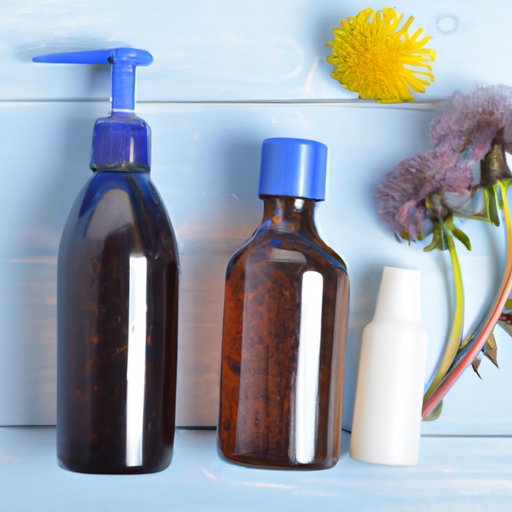
I. Introduction
If you’ve ever noticed white flakes on your scalp or clothing, you’ve likely experienced dandruff. Dandruff is a common condition that affects millions of people worldwide, regardless of age or gender. It is a harmless but unsightly condition that can cause itchiness and discomfort. Managing dandruff is not only crucial for your hair’s appearance but also important for overall scalp health.
II. The Do’s of Dandruff Management
To manage your dandruff effectively, consider adopting these practices:
1. Frequent Hair Washing
Washing your hair two to three times a week can help prevent dandruff buildup. By keeping your hair and scalp clean, you can prevent the accumulation of dead skin cells.
2. Use of Medicated Shampoo
Using a medicated shampoo that contains ingredients such as zinc pyrithione, salicylic acid, or ketoconazole can help reduce dandruff flare-ups. These ingredients work to exfoliate the scalp, inhibit fungal growth, and reduce inflammation.
3. Massaging Scalp Regularly
Regular scalp massages can improve blood circulation, which aids in maintaining a healthy scalp and hair growth. To get the best results, aim to massage your scalp for a few minutes each day.
4. Keeping Hair and Scalp Moisturized
Dandruff can worsen in dry conditions, so keeping the hair and scalp moisturized is essential. Use a moisturizing conditioner after shampooing and apply a scalp oil to improve scalp hydration.
5. Maintaining a Healthy Diet
A balanced, nutrient-rich diet helps promote overall hair health and prevent dandruff outbreaks. Ensure to consume foods such as whole grains, fruits, vegetables, lean proteins, and healthy fats.
III. The Don’ts of Dandruff Management
Avoiding the following actions can also help manage dandruff:
1. Avoiding Hot Showers
Hot water can dry out your scalp, leading to dandruff. Instead, opt for warm water when washing your hair.
2. Overuse of Hair Products
Overuse of hair styling products such as gels or sprays can clog hair follicles and worsen dandruff. Try limiting their use or using natural products instead.
3. Scratching the Scalp Excessively
Although it’s tempting to scratch your itchy scalp, avoid doing so excessively. Over-scratching can damage the scalp, causing inflammation, and worsening dandruff outbreaks.
4. Consumption of Certain Foods
Some foods like sugar, dairy, and refined carbohydrates can worsen dandruff in some people. Keep track of your diet and observe how your body reacts to certain foods.
5. Stress Management
Stress is a significant contributor to dandruff outbreaks. Practice stress management techniques such as meditation, yoga, or exercise to manage stress levels.
IV. Best Practices for Long-Term Dandruff Management
To achieve long-term dandruff management, consider these tips:
1. Finding the Right Shampoo for Your Hair Type
Everyone’s scalp has different needs, and therefore selecting a shampoo that best suits your hair type and scalp condition is crucial. It is best to consult with a dermatologist to determine the best product for your specific scalp issues.
2. Using Essential Oils for Scalp Care
Essential oils such as tea tree oil, peppermint, and jojoba can help relieve itching, reduce inflammation, and soothe the scalp. Dilute the oils in carrier oils such as coconut or almond oil before use.
3. Regular Scalp Treatments
Regularly treating your scalp to hair masks, deep conditioning treatments, or scalp scrubs can help keep dandruff at bay. These treatments help remove buildup, reduce inflammation, and supply the hair with essential moisture.
4. Precautions to Take Before Styling Hair
Before styling hair, take precautions like applying a heat protectant spray or avoiding tight braids and hairstyles that pull on the scalp. These preventative measures can help lessen scalp trauma, reducing the likelihood of dandruff outbreaks.
5. Benefits of Seeking Professional Help
If dandruff persists even after adopting healthy hair habits, seeking professional care may be necessary. Consult a dermatologist who can examine your scalp and recommend specific treatments if needed.
V. Conclusion
In conclusion, managing dandruff is crucial for overall scalp health. By adopting healthy hair habits and avoiding triggering actions, you can effectively manage and prevent dandruff outbreaks. Remember to keep a healthy diet, keep your hair and scalp moisturized, and seek professional help if needed. Do not let dandruff hinder your confidence! Adopt the suggested tips and practices to achieve long-term scalp health.




